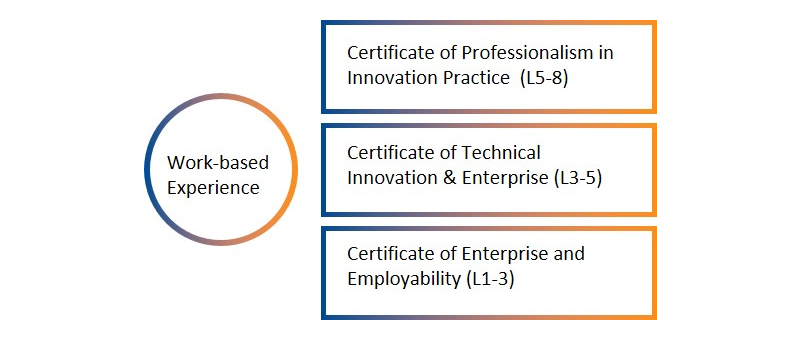Enterprise and Employability Skills Certification
Developing enterprise and employability skills within 14-19 learners
Awarding the Certificate of Enterprise and Employability® assures students, parents and carers that your programme develops enterprising thinking within their chosen vocational route. It also signposts to potential employers that they are equipped with the skills and experience required to support them with their sustained employment and career aspirations.
The criteria for the Certificate of Enterprise and Employability have been developed in conjunction with senior business and insdustry representatives.
The Certificate of Enterprise and Employability® is part of a suite of certificates and accreditation schemes that we offer through the Institute of Innovation and Knowledge Exchange (IKE), as part of our drive to support enterprise, innovation and economic growth - designed to support and accommodate achievement through levels 1 to 8 on the QCF[1], they are illustrated below:

Students will be able to demonstrate that they have achieved the relevant level in each category through the compilation of a portfolio of achievements collated across any learning activity. The overall award level will be defined by the achievement level of 75% of the categories.
The Certificate of Enterprise and Employability framework contains four categories as highlighted below:
Category 1: Team Working
This category is about working as part of a team to gather, share and evaluate new ideas. The level descriptors progress from being able to describe ways of team working from demonstrating effective practice to critically reviewing performance and managing any potential or emerging conflicts.
Category 2: Innovative Thinking
Within this category, students will need to demonstrate their ability to generate ideas and think innovatively. Starting with problem solving and process enhancement, the descriptor requirements progress from evaluating problem solving approaches to understanding their likely impact upon a business, which could be destructive as well as constructive.
Category 3: Applying Ideas
This category is where the thinking and ideas are put into action. Students will need to show how they can share and test their own ideas, drawing upon the guidance and experience of others, or support the development and implementation of other people’s ideas to solve problems and improve processes.
Category 4: Enterprise & Employability
Within this category, students will be able to demonstrate how all of the creativity, team working, testing and evaluation could lead to sustained business growth. They will need to show how they understand the market in which the business operates, its customers and/or its competitors. At higher levels they will also need to show how they would validate a potential gap in the products or services offered by a business or their target markets, and test how that could be exploited.


